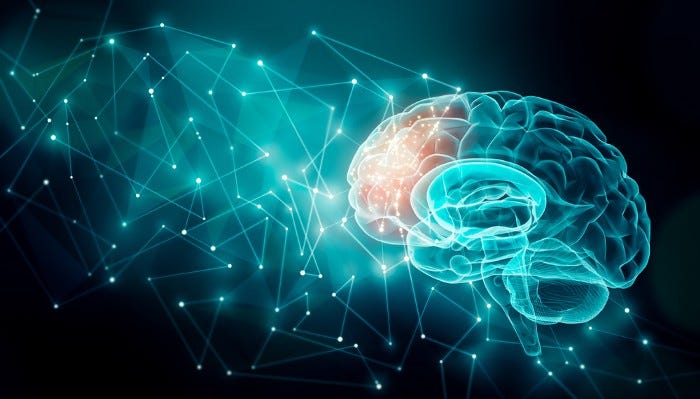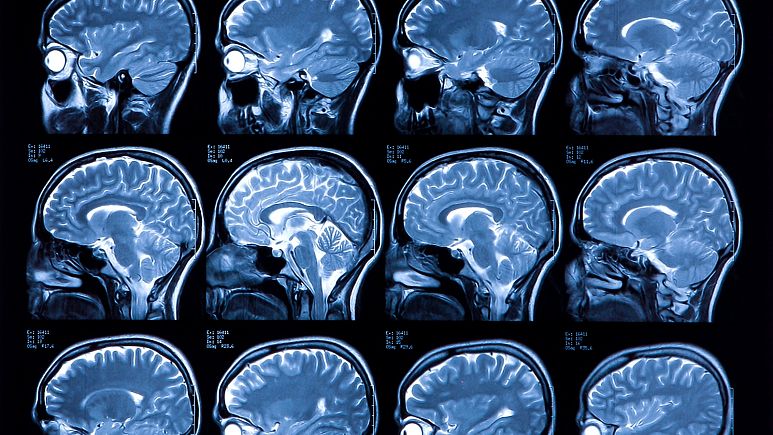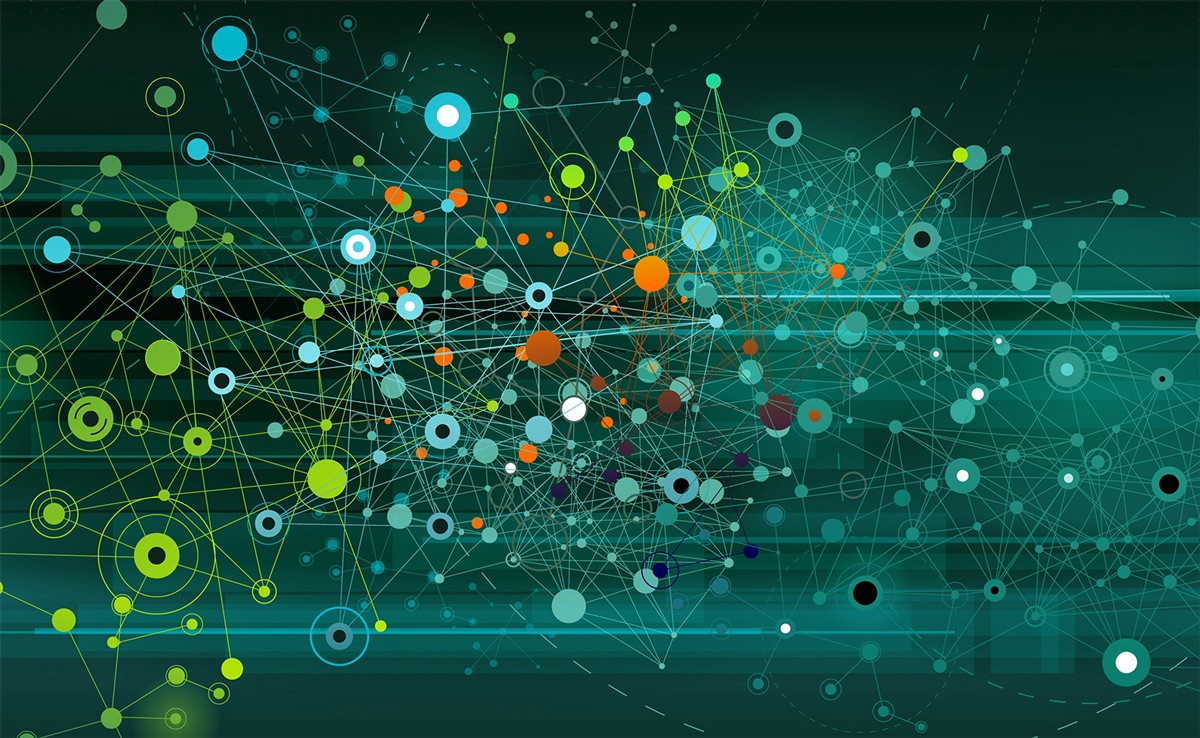Research Groups
Our research programme at I-X focuses on ambitious ideas with the potential to deliver benefits to humanity and scientific exploration. We focus on both foundational AI and AI applications, including work on pressing problems in health, sustainability, economics, and defence. Foundational AI research focuses on advances in AI technologies such as human-AI interaction, quantum computing, and explainable AI.
We have established a growing research community with over 100 academics participating in more than 30 research initiatives, and a series of new hires bringing fresh ideas and experience to priority areas. Our research groups are at the forefront of cutting-edge research in AI and related fields, and are led by some of the brightest minds at Imperial.
Dr Cristopher Salvi
Dr Cristopher Salvi’s research interests are in rough path theory, signal processing, deep learning and kernel methods. Rough path theory describes the interaction between highly oscillatory signals and non-linear dynamical systems, which has a big impact in the field of stochastic analysis. Dr Salvi is interested in how machine learning techniques can be applied to rough path theory to create advances in the field as part of the Rough Paths Interest Group which is partnered with The Alan Turing Institute and DataSig. Dr Salvi also works on developing algorithms for learning with high-dimensional irregular time series data as well as building deep learning and kernel-based models which can be applied to solve problems in physics, engineering and quantitative finance.
Currently, Dr Salvi is supervising PhD student Nicole Muca-Cirone.
Dr Xenia Miscouridou
Dr Xenia Miscouridou works on combining methods and developments of machine learning within the scope of statistical problems. Xenia has worked in many aspects of statistical machine learning, developing Bayesian methodology for nonparametric models such as graph models, stochastic processes as well as deep generative models using neural networks. Dr Miscouridou’s research on graphs can be applied to real life network data (e.g. social or biological) to predict the evolution and capture the properties of the network. With stochastic processes, Dr Miscouridou is modelling spatiotemporal social or epidemiological data to uncover the trends that drive these events in space and time rather than predict. Regarding deep learning, Xenia is interested in further understanding the mechanics of neural network systems as well as using them to facilitate statistical inference.
Dr Anastasia Borovykh
Dr Borovykh and her research group work on computational models to understand and improve information processing and learning in artificial and biological intelligent systems through a combination of tools from stochastic processes, statistical mechanics and mathematical modelling. Dr Borovykh applies these methods for the design of privacy-preserving machine learning frameworks. Privacy preserving machine learning frameworks process sensitive data, such as health data. These are vulnerable to attacks and require analysing which models are most at risk and understanding how data is stored within them.
Dr Anastasia Borovykh is also interested in applying machine learning methods for solving various challenges in the field of neuroscience.
Dr Chen Qin
Dr Qin’s research is interdisciplinary in nature and at the intersection between machine learning and medical imaging, with a vision towards improving medical imaging workflow via machine intelligence for significant impact in clinical use. Chen’s current research mainly focuses on the development of robust and trustworthy machine learning algorithms for medical image computing and analysis, including MR image reconstruction, medical image segmentation, image registration and motion tracking. Currently, Dr Qin is working on clinical applications of medical image computing in neurology and cardiovascular.
Dr Qin supervises PhD student Shaoming Zheng whose research focuses on 2D and 3D image analysis with applications in biomedicine and related machine learning tasks.
Dr Nicole Salomons
Dr Salomons’ research focuses on developing robots that shape human interactions throughout day-to-day tasks in complex and dynamic environments. The main area of Dr Salomons’ interest lies in creating peer robot tutors that can provide effective teaching.
Nicole does this by building robotic systems that create skill models of users while they perform complex tasks so the robot can provide personalized feedback for long-term skill acquisition. These models are able to select the best tasks for a user to maximise their learning. Dr Salomons’ work has demonstrated the effective use of robotic tutoring in a variety of domains including electronic circuit building, social skills training for children with autism, and in-home exercise coaching. This includes developing in-home long term systems to help shape positive behaviours which encourages both collaboration between both the user and the robot and between the user and other family members.
Additionally, Nicole studies how groups of robots influence users’ decisions. Dr Salomons’ research has demonstrated that a group of robots can cause informational and normative conformity and that groups of robots can induce prosocial behaviour in people.
Dr Roberto Bondesan
The goal of Dr Bondesan’s research is to understand how quantum computing and machine learning can help solve hard computational problems that occur in science and engineering, such as combinatorial optimization problems and the simulation of quantum systems. From finding the shortest route across cities, to finding the best way to design a complex system on a chip, combinatorial optimization problems are ubiquitous in the real world, while the efficient simulation of quantum systems will aid the discovery of new molecules and materials, with applications to drug design and sustainability.
Quantum computers can simulate quantum systems exponentially faster than classical computers and can speed up the solution to combinatorial optimization problems. Dr Bondesan’s team studies novel quantum algorithms and the challenges of deploying quantum algorithms to hardware, such as quantum error correction.
ML algorithms can learn automatically from data to approximate the solution to optimization and quantum physics problems. Data in these domains is however scarce and expensive, and Dr Bondesan’s team focuses on data efficient learning for these applications, from the design of equivariant neural architectures, to model based reinforcement learning, to neurally-augmented Monte Carlo simulations.
Dr Lukas Gonon
Dr Gonon’s research is at the intersection of mathematics, machine learning and finance. It centers around various machine learning methods (deep learning, reservoir computing, random features, kernel methods, …) and their applications to stochastic processes, partial differential equations and mathematical finance. This encompasses applying and refining these methods or developing novel methods for practically important applications (e.g. hedging or financial bubble detection) and carrying out mathematical analyses (e.g. proving bounds on the approximation errors of deep neural networks for pricing) in order to gain a more profound theoretical understanding of these methods.
Dr Sen Wang
Dr Sen Wang’s research sits at the intersection of robotics, computer vision and machine learning, driving robots and intelligent machines to understand and operate autonomously in unstructured, dynamic environments through probabilistic and learning approaches. Dr Wang’s main research areas include robot localisation, autonomous navigation, SLAM, robot vision, robot learning and their applications to tackle societal challenges from climate change to healthcare. Dr Wang was awarded the 2022 AI Most Influential Scholar Award Honourable Mention in Robotics and serves as Associate Editors of IEEE Transactions on Automation Science and Engineering, IEEE Robotics and Automation Letters, ICRA and IROS.
Dr Islem Rekik
Dr Islem Rekik is the Director of the Brain And SIgnal Research and Analysis (BASIRA) laboratory and Associate Professor at Imperial College London (IX, Computing). Together with BASIRA members, Dr Rekik has conducted more than 80 cutting-edge research projects, published in high-impact journals and conferences, and cross-pollinating AI and healthcare —with a sharp focus on brain imaging and neuroscience.
Dr Rekik is also a co/chair/organizer of more than 14 international first-class conferences/workshops/competitions (e.g., Affordable AI 2021-22, Predictive AI 2018-2022, Machine Learning in Medical Imaging 2021-22, WILL competition 2021-22). Islem is the former president of the Women in MICCAI (WiM) and the co-founder of the international RISE Network to Reinforce Inclusiveness & diverSity and Empower minority researchers in Low-Middle Income Countries (LMIC) in the field of medical imaging and AI. Dr Rekik is a strong advocate for EDI and AI capacity building in Africa and beyond.
For more about the BASIRA Lab, see:
Professor Alessandra Russo
Professor Russo contributes to AI research by developing innovative symbolic machine learning algorithms and systems capable of automatically learning complex predictive models from data and domain-specific background knowledge. These models are, importantly, explainable in human terms.
Explainability is a main advantage of these models, further facilitating a closer interaction between humans and the machine. In collaboration with her PhD students, Dr Russo has established a new form of symbolic machine learning which is proven to subsume all existing state-of-the-art symbolic machine learning systems, to be able to learn optimal solutions, to be robust to noise in the data, by overperforming differentiable symbolic learning approaches and which benefit from proof guarantees about soundness and completeness of the learned models. Alessandra has successfully developed novel neuro-symbolic learning approaches that integrate her symbolic machine learning systems with reinforcement learning and deep learning methods. A second line of research contribution has been the application of these AI solutions to domains such as software engineering, security, privacy, and network management.
Professor Alessio Lomuscio
Professor Alesso Lomuscio leads the Safe Artificial Intelligence Lab (SAIL), which focuses on the development of methods and tools to verify AI systems for their safe and secure deployment in practical applications. The research initiative, in collobaration with the Assured Autonomy DARPA programme and the Centre for Doctoral Training in Safe and Trusted AI, applies novel approaches such as machine learning to verify neural and autonomous systems (e.g. autonomous vehicles and robotic systems) and contributes to research in logic-based verification of multi-agent systems and parametrised verification of robotic swarms. The VAS group also aims to improve the explainability and fairness of AI systems for the future of safe artificial intelligence.
Dr Lomuscio’s lab has a history of development of open-source tools for safe AI in collaboration with both members of academia and industry partners in an effort to make artificial intelligence safe and secure for society to use.
Professor Hamed Haddadi
In general, Professor Hamed Haddadi’s research interests are User-Centered Systems, Internet of Things, Applied Machine Learning, Privacy, and Human-Data Interaction. Currently, Dr Haddadi is working on several EPSRC funded projects including the Open Plus Fellowship and the PETRAS ISPEF Fund which cover several of these interests. The Open Plus Fellowship, along with partners in industry, aims to provide private, trusted, personalised, and dynamic models on consumer devices that cater to the user’s requirements. This is increasingly in demand as the Internet of Things expands and consumers desire personalised products but also the protection of their privacy. The PETRAS ISPEF Fund supports the PRISM project which collaborates with the NHS and UK Dementia Research to develop an interface for users in the healthcare industry to provide privacy-preserving monitoring and home care. Dr Haddadi also contributes to several other projects as well as working in his industrial role as Chief Scientist of Brave software to increase the security of the Internet of Things and preserve user privacy.





.png)







